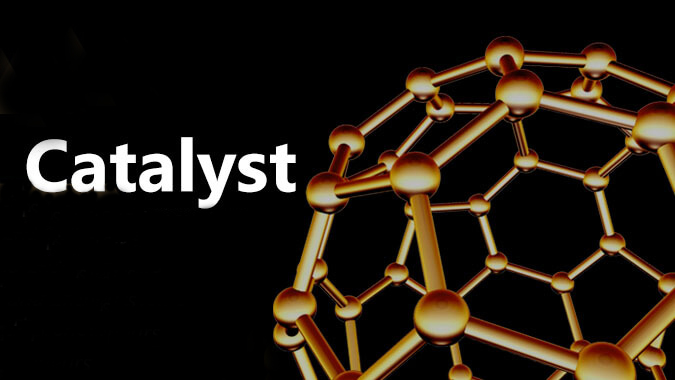
Cannabis and Banking: What to Expect
- Published
- Feb 28, 2022
- Share
In this episode of CannaCast, Partner and leader of EisnerAmper’s Cannabis and Hemp Group, speaks with Todd Sherer, First Vice President, Business Development – Specialty Clients at Valley Bank about banking for the Cannabis Industry.
Transcript
EisnerAmper: Thanks for tuning into this episode of CannaCast. I'm your host, EisnerAmper's National Cannabis and Hemp Practice Leader. Please welcome my guest today, Todd Sherer, a first Vice President for Business Development, Specialty Clients at Valley Bank. Todd has over 25 years in banking and finance and has been active in the cannabis space for over eight years. Welcome, Todd.
Todd Sherer: Thank you so much for having me. Much appreciated.
ea:
So Todd, how does one become a cannabis banker?
TS: Oh, it's a long and windy road, but here we are. I have, as you mentioned, a very long background in banking and in finance. Previous to joining Valley Bank, I was responsible for business development for a company that provided debt facilities to cannabis companies nationwide.
So for about eight years, was active in traveling the country and working with cannabis companies in originating and structuring debt facilities. And was fortunate and have been fortunate to work with many of the leaders in the cannabis industry.
ea: Todd, what makes banking cannabis different than banking other industries?
TS:Well, there are a lot of things that make it different. The overarching reason why banking cannabis is more challenging than other industries is that cannabis federally illegal. There are cannabis legal sales in 39 states around the country. Cannabis itself, is federally illegal and that poses challenges both to the cannabis operators as well as to the banking industry.
First problem is because of the limited access to banking, the business itself is very much focused on collection of cash. And when the companies have large amounts of cash, that poses problems, as it relates to security and crime and additional cost in terms of storing and moving that cash. And that poses particular challenges.
And because of the illegality, the fairly illegality of cannabis, when one banks a cannabis business, you must undertake a really deep dive into the background of the cannabis operator itself, as well as the principles and employees involved in the business. So know your customer is extremely important. And that process of due diligence is a time consuming problem. So it's challenging and it's time consuming to onboard new cannabis banking customers. But overall, it's a fascinating industry, a fast growing industry with a tremendous amount of opportunities.
ea: What does the competitive landscape look like for cannabis banking?
TS: It's interesting. That is a constantly evolving animal. Initially, when the cannabis industry was sort of first coming to fort and legal states were arising, very, it was very, very challenging to find any financial institutions at all that would bank the cannabis industry. Over time, that has developed. And initially, the void was filled primarily by small state chartered banks, as well as credit unions.
More recently, larger banks have recognized the opportunity and have made the investment both in terms of capital and personnel to develop cannabis banking programs. And Valley Bank is a great example of that. Valley Bank is a 93 year old banking institution, headquartered New Jersey national bank. And Valley Bank recognized the opportunity in the cannabis industry about three years ago. And it took about 18 months for the bank to develop the program internally, working very closely with the regulators.
So you can see that does take a fair amount of time to actually stand up a compliant banking program. And now that Valley Bank has been active in this space for an additional 18 months, we're constantly learning new things and coming out with new services to help support the industry. But it does take a long time to get started. So what we anticipate is this environment will continue to continue to evolve, and we expect that there'll be more competitors of Valley Bank's ill joining the space. And we welcome additional financial institutions to join the space.
ea: Todd, you mentioned services that the bank can provide to cannabis industry. What is Valley doing differently than some of these other banks and credit unions you mentioned before?
TS:Well, there are a couple major differences. One is because Valley Bank is a national bank as opposed to a bank that's headquartered and does all its business within one state, we have the ability to bank companies that have operations in more than one state and provide them with a platform where they could have one login to their bank account in the morning and could visit their accounts in Arizona, Ohio, Pennsylvania, what have you, and move money from one account to another account.
So that in itself is a huge leap in terms of the cannabis banking scene. Additional to that, Valley Bank is providing lending to the space. Valley provides real estate loans to our customers. And in addition to that, it's been publicized recently that Valley has introduced a new payment process called Valley Pay that is currently being beta tested with one of the nation's large multi-state operators. And we hope to have to market in several months after this, after a successful beta test. And this payment processing technology we think will be very helpful to the banking industry at large.
ea:Payment processing is always a very difficult discussion in this industry. Does Valley process credit card transactions for this industry yet?
TS:We don't. We don't. What we offer, what I mentioned as an alternative is Valley Pay, which is a closed loop payment system. Very similar to your Dunkin' Donuts or Starbucks app where one loads cash onto the app and then when you visit the retail store, you simply pay utilizing the app on your phone. So it does provide for a cashless transaction similar to a credit card transaction, but it is not utilizing visa or MasterCards to make that payment.
We are doing that on a limited basis, but not currently providing that for client touching businesses.
ea:Todd, there's been a lot of talk about the safe banking act, and that's been on the table for years now. First of all, do you ever see that passing, becoming a law of the safe banking act? And if it does, what impact will that have on the industry?
TS: Well, I would say this, your guess is as good as mine as to if and when legislation passes in Washington. I would not hold my breath for any new additional legislation to pass regarding cannabis, at least in the immediate future. But certainly, we would welcome additional regulations and additional guidance from DC. It will certainly make our job easier and hopefully allow for a more robust financial environment for the cannabis industry.
ea:It's interesting at the state level, I mean, New York and New Jersey were two states. They recently legalized cannabis for recreational use though. You can't go to a store yet or a dispensary and buy cannabis in those states yet, what other states do you see as the next to legalize? The maps that we always see in legalization are always changing, always evolving, but what do you see as the next states?
TS: I think Pennsylvania and Connecticut are two states that will closely follow New York and New Jersey. It's sort of like a domino effect it appears. Once one or two states do it in a particular region, then the surrounding states see the opportunity and join. So I think within the next couple years, you'll see the vast majority of the Northeast with legal adult use cells.
ea: Yeah. You would figure that if you're a Connecticut resident, it's very easy to move into New York and New Jersey to buy illegal product there and bring it back across the state.
TS: Absolutely. Absolutely. If you were to go to a Massachusetts dispensary on a Saturday morning, one that was close to the New York border, you will see a parking lot full of New York and New Jersey plates.
ea:Do you see federal legalization in the near future, in the near term or in the short term or long term?
TS:I would say certainly in the long term. I think it's unrealistic that we would see federal legalization in the immediate term. I think that's several years out in the future at a minimum.
ea: Yeah. I would think with there's enough going on, on the plates of the president and the house and the Senate to focus on rather than legalization of cannabis.
TS:Exactly, exactly. Right.
ea:All right. Great.
TS: So we have a couple interesting years ahead of us, I would say.
ea:Fantastic. Well, thanks for listening to CannaCast as part of the EisnerAmper podcast series. Visit EisnerAmper.com/cannabis for more information and podcast and join us for our next CannaCast podcast where we'll discuss other budding issues.
Transcribed by Rev.com
Also Available On
Contact EisnerAmper
If you have any questions, we'd like to hear from you.
Receive the latest business insights, analysis, and perspectives from EisnerAmper professionals.











